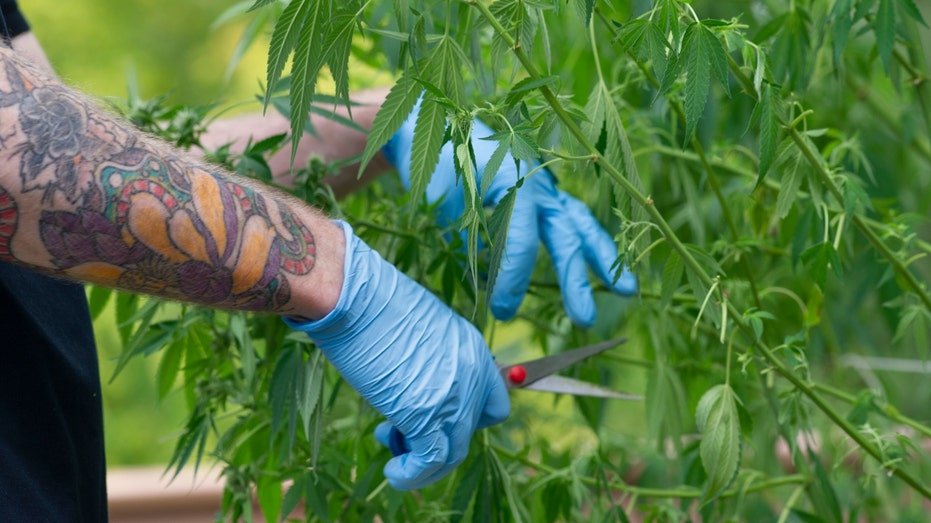Washington pot regulators halt operations at several farms over pesticide concerns
State officials have asked cannabis companies affected by the order to recall products that may be tainted
NYC Sheriff’s Office cracking down on 1,400+ illegal marijuana locations suspected in NYC
FOX Business’ Madison Alworth reports on New York City’s recent efforts to eradicate all smoke shops illegally selling marijuana-based products on ‘The Claman Countdown.’
Marijuana regulators have stopped operations at several outdoor marijuana farms and processing facilities in Washington after testing found high levels of chemicals linked to a dangerous decades-old pesticide.
The facilities, which are located in north-central Washington in an area that used to be fruit orchards, were shut down at least temporarily on Thursday after the announcement by Washington’s Liquor and Cannabis Board.
Officials said that samples collected from grow operations along a stretch of the Okanagan River north of Brewster showed high levels of DDE, which is a chemical that will remain in the soil after DDT breaks down. DDT is a cancer-causing pesticide that was banned by the U.S. in 1972.
NEW YORK CITY CRACKING DOWN ON ILLEGAL WEED SHOPS

Several outdoor marijuana growers in northern Washington have been ordered by the state to halt their operations after decades-old pesticides were detected. ((Photo by: Kurt Wittman/UCG/Universal Images Group via Getty Images) / Getty Images)
Washington's marijuana regulators placed "administrative holds" on the licenses of 16 producers and two processors in the area, requiring both to stop operations until further notice. It’s unclear how many businesses were affected by the move because each can hold multiple licenses.
Most of the marijuana grown in the area was sold to other processors on a wholesale basis and regulators are working with growers and processors to identify which products the tainted cannabis was used in so that it can be tested in stores. Officials have also asked companies affected by the situation to issue recalls.
WASHINGTON OFFERING DRUG OFFENDERS PRIORITY STATUS FOR ‘SOCIAL EQUITY’ LICENSES TO SELL WEED

Washington regulators have asked marijuana companies affected by the pesticides to recall products. (AP Photo/Seth Wenig / AP Newsroom)
Cannabis plants have the propensity to pull contaminants out of the soil and have been studied as a tool for environmental cleanup. While this can be a useful attribute for plants that are solely being planted to remediate the soil, it can be problematic when those contaminants leech into plants intended for consumption as contaminants can be especially high in marijuana extracts and concentrates.
Marijuana remains illegal under federal law and as a result, regulations for matters like pesticide testing and tolerance levels vary between states that allow the medical or recreational consumption of the substance.
GET FOX BUSINESS ON THE GO BY CLICKING HERE
Last year, the state of Washington revised its testing regimen to begin to require marijuana producers to send samples to state-certified laboratories for mandatory pesticide testing, having previously done random testing for pesticides like DDE.
Washington was the last state with legal marijuana to adopt mandatory pesticide testing. Samples are now analyzed for the presence of 59 pesticides and although DDE isn’t currently one of those, it and a related compound, DDD, will be covered by the testing regime under rules currently being developed.
The Associated Press contributed to this report.




















